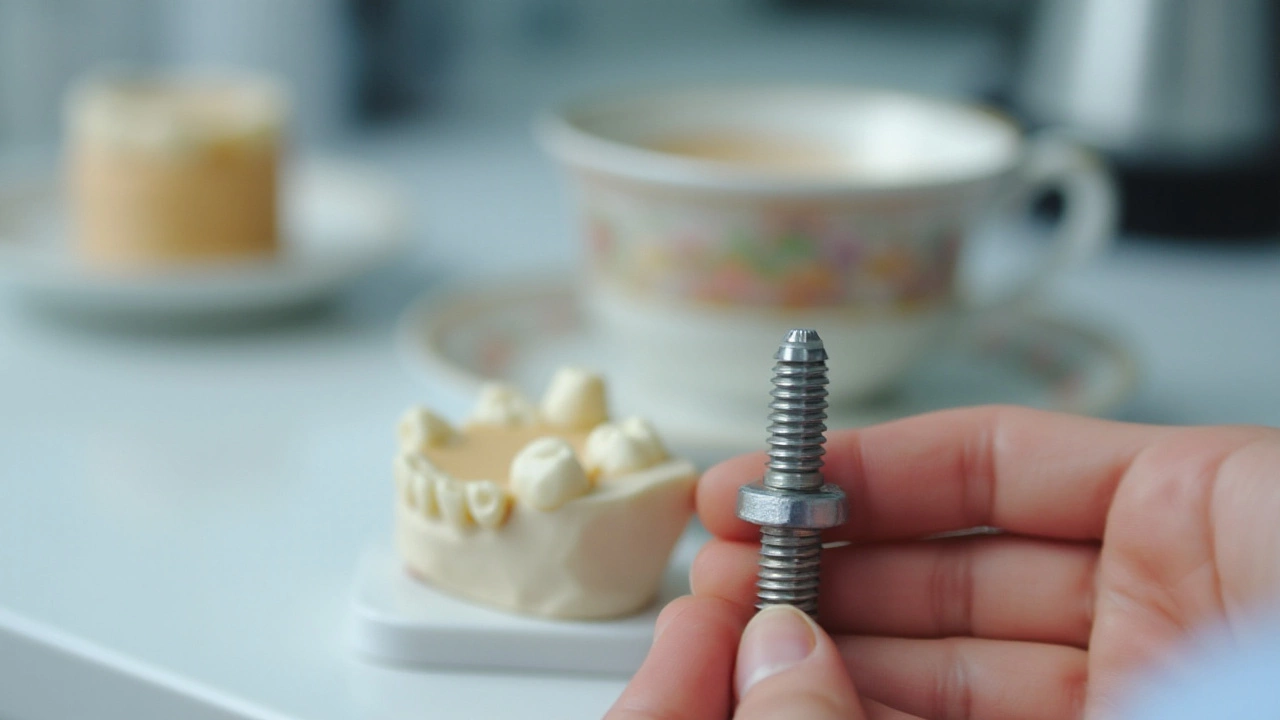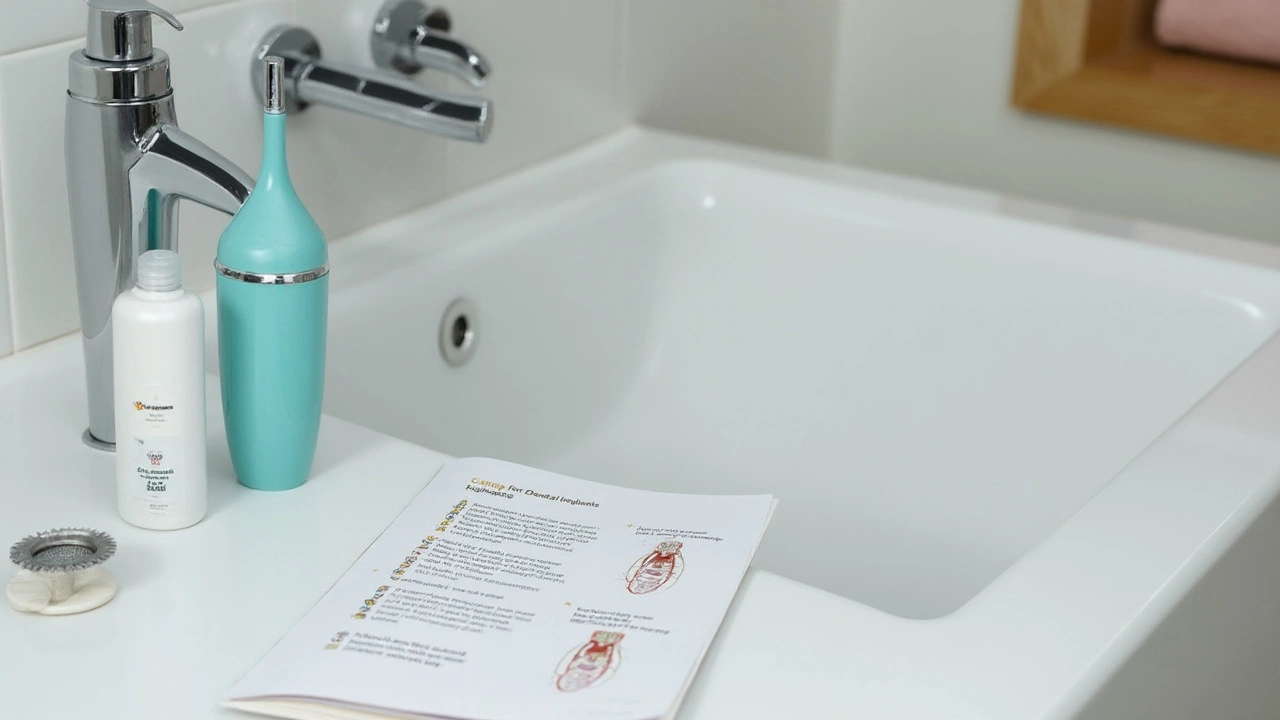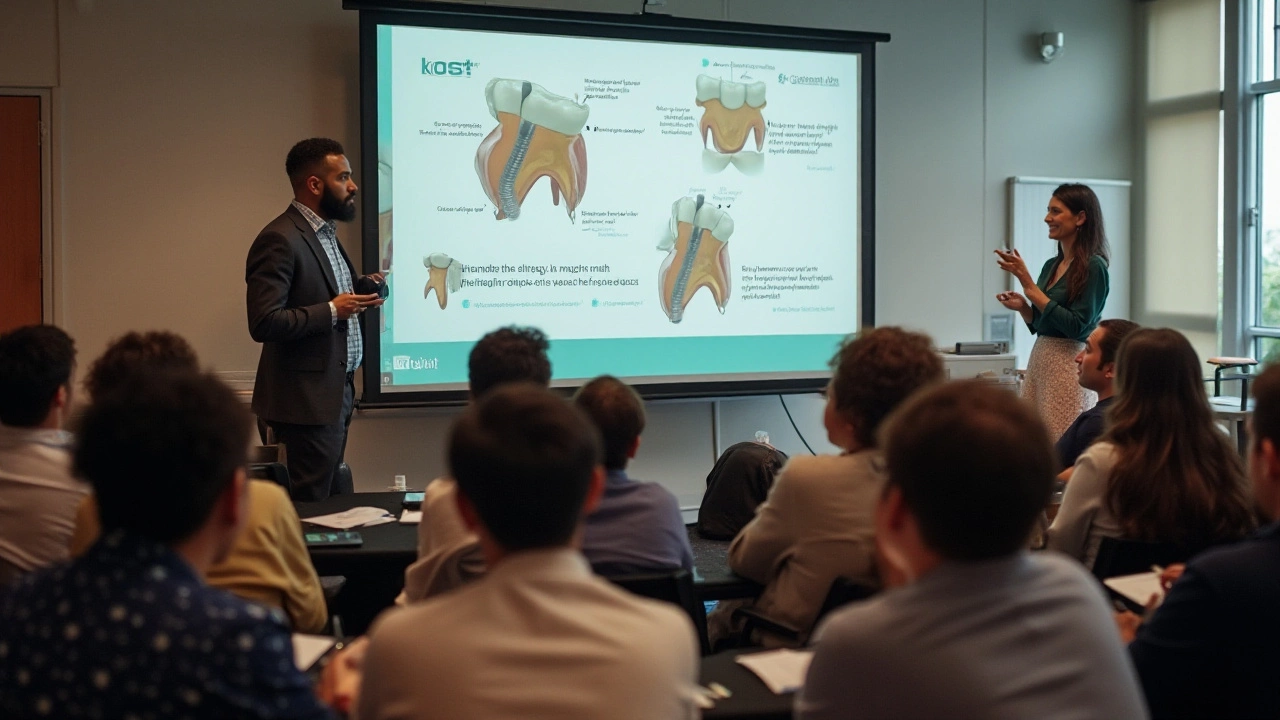Many people wonder if dental implants need to be taken out each night. With the influx of information, myths about oral implants abound, leaving some folks uncertain about how to care for these innovative dental solutions properly.
Dental implants are pieces of advanced technology designed to stay in place permanently, mimicking the look and feel of natural teeth. Unlike dentures, which must be removed regularly, implants offer a secure and steadfast alternative.
Here, we'll shed light on the world of dental implants, offering advice for daily care and addressing any apprehensions you might have regarding their permanence and functionality. Decipher the myths and embrace the benefits of having dental implants as part of your smile.
- Understanding Dental Implants
- Daily Care for Implants
- Common Myths Debunked
- Benefits of Permanent Implants
Understanding Dental Implants
Dental implants are a remarkable innovation in the world of dental care, offering a permanent solution to tooth loss. They are made from biocompatible materials, often titanium, which integrates seamlessly with the jawbone through a process called osseointegration. This means the implant becomes a part of the jaw, providing unmatched stability and strength to support dental prosthetics like crowns, bridges, or even dentures.
Unlike traditional dentures, which can slip or move, dental implants remain securely in place, offering the user a natural feeling while eating, speaking, or smiling. This stability also contributes to better oral health. By replacing missing tooth roots, implants help preserve the bone and prevent the loss of jawbone density, which often occurs with time when teeth are missing.
Investing in oral hygiene with implants not only improves functionality but also enhances aesthetics. They replicate the appearance of natural teeth, making them an ideal choice for individuals seeking both functional and cosmetic improvements. The fact that they do not require the alteration of adjacent teeth, as bridges might, preserves more of the patient's natural dentition, which is optimal for long-term dental care.
The Procedure and Beyond
Getting implants is not an overnight process but a carefully planned journey that involves several steps. It begins with a thorough evaluation by a dental professional to assess the patient's suitability. Once approved, a detailed treatment plan is laid out, considering the individual’s oral health needs.
The actual surgical placement of the implant is done under local anesthesia, providing a pain-free experience. After the surgery, a period of healing is required to allow the implant to integrate with the bone naturally. During this phase, the patients are advised to maintain impeccable oral hygiene, ensuring the successful healing and integration of the implant.
"Dental implants have revolutionized the way we think about tooth replacements," says Dr. Emil Duda, a renowned oral surgeon. "They are not just a cosmetic solution but a functional one that restores the patient’s ability to live without the discomfort of removable dentures."
This testimony underscores the pivotal role that implants play in modern dentistry. It's also worth noting that with proper care and maintenance, dental implants can last a lifetime, making them a wise investment for many immediately and later down the road.
To sum up, dental implants truly shine as permanent substitutes for missing teeth, aiding in restoring one's quality of life. They merge the realms of health and aesthetics like no other dental solution, proving their vast popularity among dentists and patients alike. So, if you've ever wondered about the fuss surrounding dental implants, now you know the incredible advantages they offer!

Daily Care for Implants
Taking care of your dental implants is vital to ensuring their longevity and keeping your oral health in top shape. Though they require less fuss than traditional dentures, implants still need regular attention to maintain their appearance and functionality. The great news is that the daily care routine for implants is very similar to that of natural teeth. Good oral hygiene becomes second nature after a while, offering both a practical and beneficial approach to long-term dental success.
To start, brushing at least twice a day is non-negotiable. It's best to use a soft-bristled toothbrush to prevent damage to the gums and to gently clean the implants without causing abrasion. When choosing a toothpaste, pick ones with low-abrasive properties. This ensures that, while cleaning effectively, the titanium surface of the implant remains unscratched and intact. Don't forget to brush the back and chewing surfaces of the implants, as all-around cleaning plays an important role in preventing plaque buildup.
Flossing is another critical step, often overlooked by many but particularly essential for those with implants. There are floss products specifically designed for use with dental implants, or you might opt for a water flosser, which can effectively clean between teeth and around the implant where traditional tools might not reach. Make it a habit to floss thoroughly each day, as this becomes your implants' best defense against unwanted bacteria that can result in gum diseases such as peri-implantitis.
"The longevity of dental implants depends significantly on the diligence of daily care routines," says Dr. Amelia Smith, a renowned dental surgeon from Manchester. "It's comparable to taking care of regular teeth, with an emphasis on being gentle yet thorough."
In addition to at-home care, scheduling regular check-ups with your dentist should be non-negotiable. Typically, visiting your dental professional every six months allows for early detection of potential issues. Professional cleanings help to remove tartar and assess the condition of your implants and surrounding tissues. During these visits, your dentist might use special tools to ensure the implants remain in pristine condition without causing damage.
Witnessing the transformation dental implants can provide—both aesthetically and functionally—is thrilling. Embrace the commitment to a daily care routine, mindfully protecting your investment. Stay informed, allowing expert advice, such as the guidance from the others who've benefited from improved oral hygiene with implants, to lead your journey. Making regular oral hygiene a simple, habitual part of your day holds the promise of sustained enjoyment of the many benefits dental implants bring.

Common Myths Debunked
When it comes to dental implants, their permanence can sometimes lead to a swirling of myths that confuse and bewilder those considering this transformative oral solution. For instance, a commonly held belief is that implants, like dentures, should be removed at night for cleaning and to let the gums breathe. This is simply not the case. Implants are designed to remain in your mouth permanently, integrating with the bone much like natural tooth roots. There is no need to yank out these resilient anchors nightly. They endure while providing stability and strength for seamless everyday use.
Another myth suggests that dental implants require as much fiddling and maintenance as traditional dentures. In reality, dental care for implants aligns more with natural teeth habits—brushing twice daily and regular flossing to maintain optimal oral hygiene. The fixation of implants within the jawbone makes them immovable, allowing their wearers to chew and speak without anxiety. Myths often exaggerate the complexity of their care, but once they're fitted, implants become like any other part of your mouth—made to serve you with little fuss.
Some folks worry if implants might not suit them, assuming these marvels of modern dentistry are only for the young or healthy. This misconception can deter people from exploring a solution well-suited for diverse needs. Interestingly, most patients, regardless of age or health conditions, can consider implants. A detailed consultation with a dental professional and a thorough examination will inform whether you're an ideal candidate. The fabrication of implants involves strong materials, making them applicable for varied lifestyles.
Delving Into the Longevity of Implants
Long-term durability should not be overlooked when discussing myths. Some concerns stem from rumors about their endurance, where fears of implants wearing out quickly persist. These artificial roots can indeed lead vibrant careers within mouths for decades when cared for properly, outlasting many alternative methods.
"Dental implants have a long success rate often surpassing 95%, and with proper care, they can last a lifetime," says the British Dental Association.
The notion that implants might all fail simultaneously is a myth fed by misunderstanding. While rare, complications can occur, much like they can with natural teeth. In simpler terms, they must be monitored, but failure is improbable with regular dental check-ups and hygiene practices. Address concerns and myths directly with your dental professional; they will provide evidence-based answers, helping you separate misconceptions from facts about dental implants. Clearing misconceptions allows you to appreciate the full scope of benefits these incredible advancements offer.

Benefits of Permanent Implants
Choosing dental implants over other options can bring a myriad of advantages, and it's important to consider these when thinking about your oral health. These implants are a revolutionary option for many, providing a permanent solution that replaces missing teeth, seamlessly integrating into your lifestyle without hassle. One of the standout benefits is their natural appearance. By mimicking your real teeth in both look and feel, dental implants allow you to smile confidently, knowing that your teeth look entirely authentic. Because they're anchored securely in your jawbone, there's no need to worry about them shifting or falling out when you're eating or speaking.
This natural fit is not just for aesthetics, though. The oral hygiene aspect is significant too. With dental implants, you don't have to change much about your usual cleaning routines. They are maintained just like your regular teeth, meaning there's no extra hassle involved. Brush them at least twice daily and floss regularly. This helps not only in keeping them immaculate but also in maintaining good overall oral health. Interestingly, the integration of implants into your jawbone leads to jaw stimulation, thus preventing bone loss—a common problem faced by those wearing dentures.
Comfort plays a crucial role when discussing dental implants. While dentures may cause discomfort or even soreness due to their removal and replacement, implants stay fixed, giving you a seamless experience throughout the day. This fixation allows people to enjoy their favorite foods without the fear of slippage or discomfort, thereby enhancing one’s quality of life significantly.
As the British Dental Journal points out, "Dental implants provide a strong and stable foundation, offering patients a forgiving experience compared to more traditional removable options."
Let's not forget their durability. When looked after properly, dental implants can last a lifetime, making them highly cost-effective in the long run. Although the initial investment might seem more than that of temporary solutions, the longevity and minimal maintenance costs balance out over time. The resilience of these implants means fewer dental visits for replacements or adjustments, saving both time and money.
Moreover, dental care professionals in the UK have perfected the art of implant placement, further enhancing their reliability. With modern technology and meticulous planning, risks are minimal, promising a safe, effective procedure. This adds immense value, knowing the procedure is in skilled hands, making it easier for patients to trust the process and its outcomes.
| Advantage | Description |
|---|---|
| Natural Appearance | Seamlessly mimics real teeth in look and feel. |
| Stability | Anchored securely, preventing movement during eating or talking. |
| Oral Health | Normal oral hygiene routines suffice, boosting long-term periodontal health. |
| Longevity | Can last a lifetime with proper care, reducing long-term costs. |




